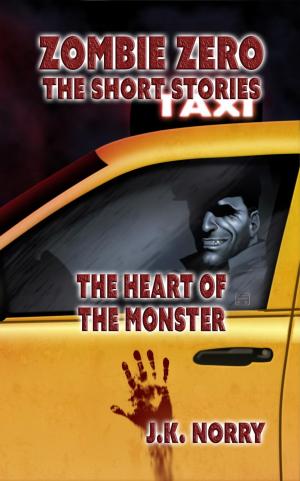| Author: | Clive Cooke | ISBN: | 9781301016242 |
| Publisher: | Clive Cooke | Publication: | September 4, 2013 |
| Imprint: | Smashwords Edition | Language: | English |
| Author: | Clive Cooke |
| ISBN: | 9781301016242 |
| Publisher: | Clive Cooke |
| Publication: | September 4, 2013 |
| Imprint: | Smashwords Edition |
| Language: | English |
This book comprises two collections of short stories. The first is a medley ranging from Sci Fi to murder and from humor to satire. The second half is a continuation of the series: “Big Companies for Dummies” stories which are set in the corporate world.
“String Theory” is a science fiction story at the human level, rather than an epic. An American family on a boating holiday off the coast of Croatia is involved in a strange incident for which there is no logical explanation.
The second story “Meow…. Burp” is a lampoon of fad diets. The narrator is an overweight cat.
The third story, “Murder 101”, is set on the campus of a university. A professor of English Literature tries to liven up his course by studying books by crime writers. Meanwhile, a series of murders takes place on the campus, seemingly copying the lectures given by the professor. Naturally, the professor becomes the prime suspect.
“Pygmalion 2336” is another Sci Fi story. It is a re-working of the Greek Myth of that name, a theme used by George Bernard Shaw in his play Pygmalion, in the musical “My Fair Lady” and in the Roberts-Gere film “Pretty Woman”. This version is set 400 years after the first computer algorithm was written. Who is in control in the year 2336…. humans or computers?
Stories five to seven comprise a trilogy of humorous tales inspired by the famous film starring Jack Lemon, Virna Lisi and Terry Thomas. The first is: “How to Murder Your Wife”. The second is: “How to Murder Your Husband” and the third is: “How to Murder your Mother in Law”.
The eighth story “The Séance” is about a crook who tries to earn a living as a spiritualist, but finds himself caught up in murder.
The “PhD Virus” is a humorous story about going back to work (or school) after the summer vacation. We all agree that holidays are too short. Take my advice and get a doctor to certify that work is making you unwell.
“Economic Warfare” is a lampoon of academics (especially economists) who are partial to bad-mouthing one another in the open press.
The second half of the book is a continuation of the series: “Big Companies for Dummies”. Anyone who has ever worked for a big organization should recognize some of these stock characters and situations.
The first story, “Bootblack”, is a humorous tale about a greedy financial advisor. A pity he never took the advice given to him by the man who polishes his shoes on the plaza outside his office.
“Alpha Male” lifts the lid on how appointments and promotions are made in big companies. Despite the official line, the committee charged with plotting the human resource strategy is simply an opportunity for the alpha males in the company to parade around showing off their muscles.
The story “Black Dog” is a humorous tale about how people behave when things go wrong. If there is any mud flying around, you had better make sure it does not land on you.
‘Schadenfreude” is the German word for the pleasure one derives from other people’s misfortune. Does it actually happen in real life? You bet is does.
“Wheel of Fortune” charts the ups and downs of people’s careers. You can never be too sure what will happen at the next company re-organization, or the one after that, or the one after that.
“Terms and Conditions” is a serious story about coping with disappointment. We can’t all get to the top of the company. In any case, is it really worth trying?
The final story called “Ethics Training” is a farcical romp. Every time a big company gets caught out for wrong-doing, it responds by sending its staff on an ethics training course. The real reason is to exonerate management when the proverbial hits the fan. One is expected to learn something at these courses. One has to pass the test at the end. Take heart: no-one answers these tests truthfully. You would be stupid to do so.
This book comprises two collections of short stories. The first is a medley ranging from Sci Fi to murder and from humor to satire. The second half is a continuation of the series: “Big Companies for Dummies” stories which are set in the corporate world.
“String Theory” is a science fiction story at the human level, rather than an epic. An American family on a boating holiday off the coast of Croatia is involved in a strange incident for which there is no logical explanation.
The second story “Meow…. Burp” is a lampoon of fad diets. The narrator is an overweight cat.
The third story, “Murder 101”, is set on the campus of a university. A professor of English Literature tries to liven up his course by studying books by crime writers. Meanwhile, a series of murders takes place on the campus, seemingly copying the lectures given by the professor. Naturally, the professor becomes the prime suspect.
“Pygmalion 2336” is another Sci Fi story. It is a re-working of the Greek Myth of that name, a theme used by George Bernard Shaw in his play Pygmalion, in the musical “My Fair Lady” and in the Roberts-Gere film “Pretty Woman”. This version is set 400 years after the first computer algorithm was written. Who is in control in the year 2336…. humans or computers?
Stories five to seven comprise a trilogy of humorous tales inspired by the famous film starring Jack Lemon, Virna Lisi and Terry Thomas. The first is: “How to Murder Your Wife”. The second is: “How to Murder Your Husband” and the third is: “How to Murder your Mother in Law”.
The eighth story “The Séance” is about a crook who tries to earn a living as a spiritualist, but finds himself caught up in murder.
The “PhD Virus” is a humorous story about going back to work (or school) after the summer vacation. We all agree that holidays are too short. Take my advice and get a doctor to certify that work is making you unwell.
“Economic Warfare” is a lampoon of academics (especially economists) who are partial to bad-mouthing one another in the open press.
The second half of the book is a continuation of the series: “Big Companies for Dummies”. Anyone who has ever worked for a big organization should recognize some of these stock characters and situations.
The first story, “Bootblack”, is a humorous tale about a greedy financial advisor. A pity he never took the advice given to him by the man who polishes his shoes on the plaza outside his office.
“Alpha Male” lifts the lid on how appointments and promotions are made in big companies. Despite the official line, the committee charged with plotting the human resource strategy is simply an opportunity for the alpha males in the company to parade around showing off their muscles.
The story “Black Dog” is a humorous tale about how people behave when things go wrong. If there is any mud flying around, you had better make sure it does not land on you.
‘Schadenfreude” is the German word for the pleasure one derives from other people’s misfortune. Does it actually happen in real life? You bet is does.
“Wheel of Fortune” charts the ups and downs of people’s careers. You can never be too sure what will happen at the next company re-organization, or the one after that, or the one after that.
“Terms and Conditions” is a serious story about coping with disappointment. We can’t all get to the top of the company. In any case, is it really worth trying?
The final story called “Ethics Training” is a farcical romp. Every time a big company gets caught out for wrong-doing, it responds by sending its staff on an ethics training course. The real reason is to exonerate management when the proverbial hits the fan. One is expected to learn something at these courses. One has to pass the test at the end. Take heart: no-one answers these tests truthfully. You would be stupid to do so.















